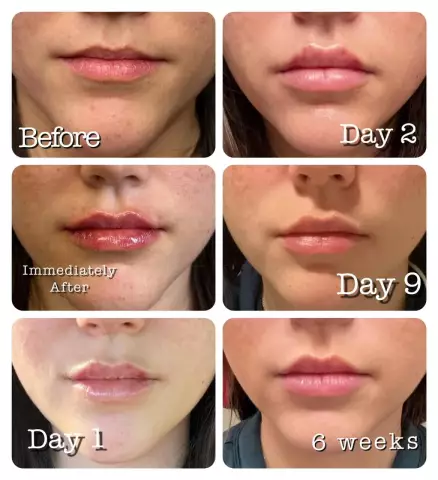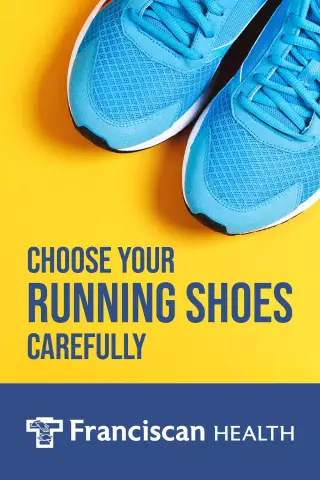- Author Rachel Wainwright wainwright@abchealthonline.com.
- Public 2023-12-15 07:39.
- Last modified 2025-11-02 20:14.
How to monitor your health during a pandemic
Steps have been taken across the country to reduce human contact to slow the spread of COVID-19. This “social distancing” includes canceling public events, restricting public transport, closing schools, and redeveloping health facilities. From the blue screens, they tell us very well where not to be and explain in detail about the fines. There are dozens of tips on how to keep yourself busy during isolation and how to maintain good spirits. We want to talk about what opportunities are available to you to get help and stay healthy in this difficult period.

It is believed that the very word "quarantine" comes from the Italian "quarantino", which literally means the number 40. This is how many days during the raging plague ships had to be at anchor before the crew was allowed to disembark. Over time, quarantine has been successfully applied to limit other infectious diseases around the world. The purpose of current social distancing has not changed, although the title sounds softer. Complicate and limit transmission of the virus. This will allow time to prepare hospital beds and reduce the peak health care demand, which has reached catastrophic levels in Wuhan or northern Italy. Elderly people around the world have been hit hard by the coronavirus. In most people, the new virus causes mild to moderate symptoms, such as fever and cough, that resolve in two to three weeks. Others,especially the elderly and debilitated diseases, this can lead to more serious illness, including pneumonia and death
Back in 2011, the World Health Organization (WHO) literally declared another pandemic - chronic diseases. The four non-communicable constituents, namely cardiovascular disease, cancer, diabetes and chronic lung disease, have become the leading cause of death worldwide and continue to dominate. WHO estimates that by 2030, these four horsemen will account for 75% of the world's deaths.
Who is at greater risk?
- All people aged 65 and over, no matter how healthy they are.
- Any age with chronic diseases.
The list of medical conditions includes respiratory problems such as asthma, bronchitis, and chronic obstructive pulmonary disease (COPD); heart disease such as heart failure; chronic kidney or liver disease, including dialysis patients; neurological conditions, including Parkinson's disease and multiple sclerosis; hypertension; sickle cell anemia. People with weakened immune systems: HIV / AIDS infected, forced to take steroids or undergoing radio and chemotherapy, patients after organ transplantation. Obese people with a BMI of 40 or more and those who are pregnant are also at high risk.
How is help now? Waiting for an "urgent" reason?
Today, in connection with the pandemic, the organization of medical care has been temporarily changed - medical examination has been suspended, citizens are advised to postpone the time for seeking routine medical care both in polyclinics and in hospitals. At the same time, medical care for patients with oncological diseases, diseases of the cardiovascular and endocrine systems, as well as those on renal replacement therapy is guaranteed in full. In fact, many institutions are being redesigned - this is important and necessary. Getting to the nearest working clinic is getting difficult. Routine medicine cannot stop either. Many people need regular tests - the success of basic therapy depends on them. Any medical center, any hospital is a potential source of infection. This is really the last place you should be,if you don't feel bad.
What should people with chronic diseases do?
Don't stop taking your medication
In no case do not stop taking medications and the started course of treatment on your own. This is especially important for patients with cardiovascular disease. It is important to continue with rehabilitation activities for those who have suffered a stroke. You should not give up drugs that lower blood pressure and drugs that improve blood supply to the heart and brain.

Taking nootropic drugs
Acting as a vasodilator, nootropics improve the blood circulation in the brain and at the same time provide it with important nutrients and increase the flow of energy and oxygen to the brain.
Nootropics are a special group of drugs. Acting through various mechanisms, they can significantly improve the functioning of the brain.
What is very important for self-isolated people - nootropic drugs can improve memory, attention, improve mood, reduce fatigue, and help those who have already had a cold or viral disease recover. The drugs of these groups can be used together with other drugs to prevent exacerbations of chronic diseases and support the immune system.
Some of the nootropics have several positive effects at once. Thus, the drug Cortexin increases resistance to stress, protects neurons from damage, has an anticonvulsant effect, and helps to quickly recover the functions of the central nervous system after stress. It also protects the brain tissue from the toxic effects of other drugs, which are usually prescribed a lot for chronic diseases. Cortexin was created at the Department of the Military Medical Academy in St. Petersburg and since then has passed many scientific tests. Its effectiveness has been substantiated in a variety of acute and chronic diseases: after a stroke, sleep disturbances, and even a decrease in depressive symptoms has been noticed due to the mild relief of anxiety and complex restoration of nerve cells. This is a great support and prevention option. Therefore,if you are undergoing a course of treatment with drugs such as Cortexin, it is important not to stop taking it at this difficult time.
Take control of the situation
None of us expected that we would have to sit at home for an indefinite amount of time. People with chronic diseases are at higher risk than others. For them, a few quick tips:
- Even if you are confined to a small space, try to get up and walk more often. In fact, a sedentary lifestyle has been labeled "new smoking" due to increasing obesity and related diseases.
- If you plan to spend time in front of the TV in self-isolation, placing a small pillow between your lower back and the couch will help prevent back pain and maintain your posture. Take breaks for light walking or exercise.
- In the absence of a daily routine, you will likely eat more. Do not forget about the principles of healthy eating or follow the diet prescribed by your doctors. Before the next approach to the refrigerator, ask yourself: "Am I really hungry now, or do I just have nothing to occupy myself with?" Try drinking a glass of water instead of a snack.
- Don't be discouraged and don't panic. Stress contributes greatly to the exacerbation of chronic diseases. Communicate more with your family.

Do not stop taking the prescribed drugs! Continue the course of treatment started before self-isolation. At the same time, some drugs, such as Cortexin, not only have the main effect (improve the functions of the cerebral cortex and the metabolism of neurons), eliminate fatigue and restore performance, but also help reduce the symptoms of anxiety and stress caused by isolation.
Found a mistake in the text? Select it and press Ctrl + Enter.






